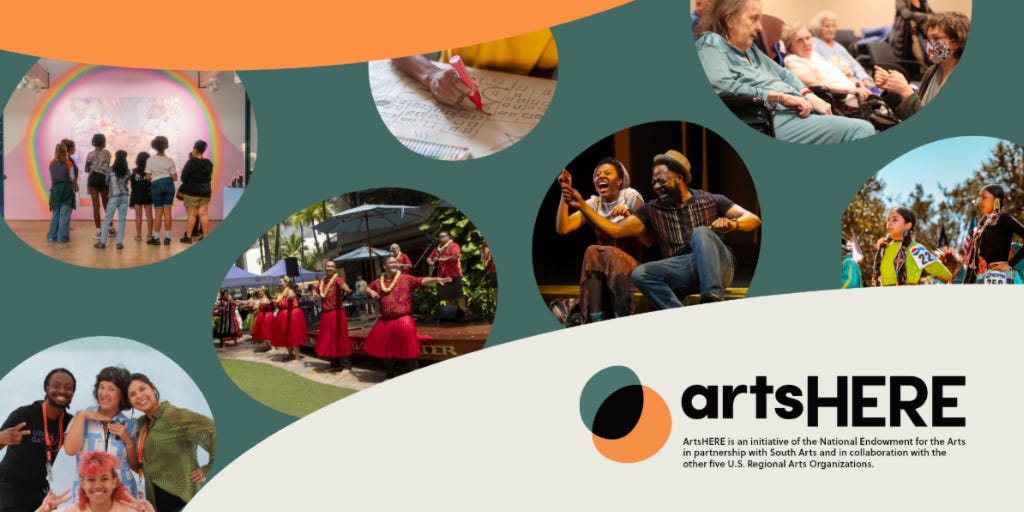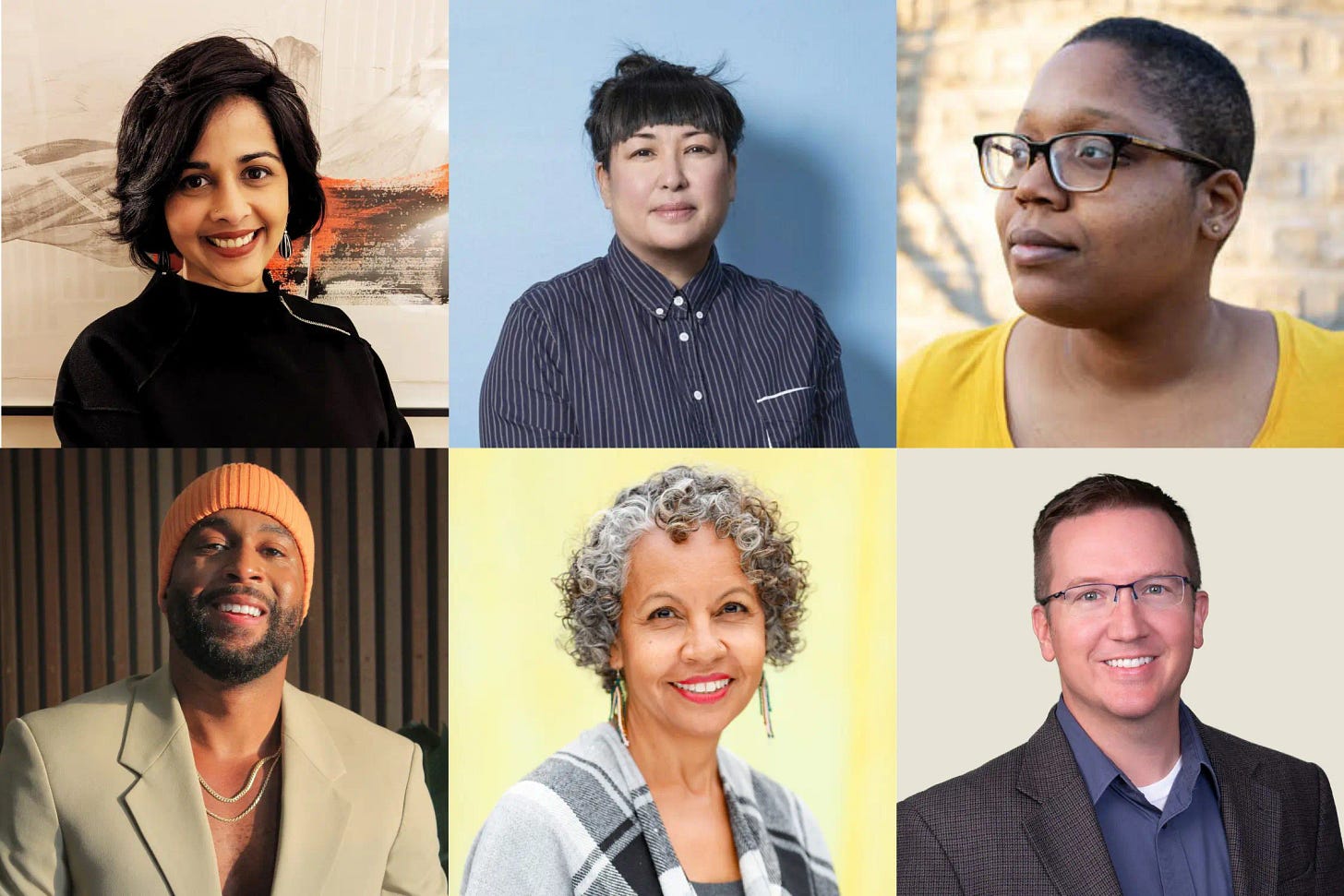Is the NEA Putting DEI Before Art?
How the NEA's ArtsHERE program shifts the focus from artistic excellence to political conformity—and why it matters for the future of the arts in America.
Last week, the National Endowment for the Arts (NEA) announced 112 organizations it plans to award with over $12 million under its new ArtsHERE pilot program. The initiative aims to boost arts participation by strengthening the capacity of local organizations working with underserved communities as defined by factors like race, disability, economic status, or geography. To be eligible, organizations must demonstrate a commitment to equity in their practices and programming, reflecting the NEA's intent to address disparities in arts participation. ArtsHERE will provide these organizations grants ranging from $65,000 to $130,000 and structured learning opportunities.
While expanding access to the arts is a worthy goal, the NEA’s approach raises important questions: Is the agency putting the art first, or something else entirely? By focusing on Diversity, Equity, and Inclusion (DEI) objectives, many of the funded projects raise concerns about a shift away from cultivating the highest artistic standards. For some grantees, these grants make up 10% to over 80% of their budgets, making the accompanying political priorities hard to ignore.
At a time when major businesses are retreating from overt political commitments, the arts sector is doubling down. National associations like the American Alliance of Museums, the League of American Orchestras, and Dance/USA continue to advance DEI as a core principle among member organizations. The NEA’s continued focus on DEI reflects the prevailing direction of many arts institutions, even as broader debates about the role of such ideologies in public life intensify.
Consider Tidewater Arts Outreach in Virginia, which is set to receive a grant of $123,500 through ArtsHERE, representing nearly 42% of its reported 2023 revenue. The organization serves elderly populations through the arts, though age alone does not qualify as an underserved category under the NEA's framework. Despite this, the grant will support program evaluation, strategic planning, and Justice, Equity, Diversity, and Inclusion (JEDI) training, raising questions about whether these priorities align with the organization's true mission.
Similarly, Free Spirit Media in Illinois will receive $110,000, representing over 11% of its reported 2023 revenue. The organization primarily works with youth from Chicago’s West and South sides. Yet, this grant is aimed at “reimagining evaluation” through the lenses of storytelling, social justice, and equity, shifting the focus from artistic training to ideological experimentation.
Other projects on the ArtsHERE grant list follow a similar pattern. The Queer Spectra Arts Festival in Utah will receive $65,000 for strategic planning to expand programming for LGBTQ artists and communities. NXTHVN in Connecticut will receive $130,000 for its disability justice project, and PRISMID Sanctuary in Oregon will focus its $130,000 on capacity-building initiatives around DEI and restorative justice. Creative Reaction Lab in Missouri, receiving $130,000, will use the funds to expand its Artwork for Equity program, which educates Black and Latinx youth to address systemic injustices through creative activism.
In addition to funding, ArtsHERE requires grantees to participate in monthly cohort sessions, monthly one-on-one coaching, and quarterly workshops throughout the grant period from October 2024 through June 2026. The program’s coaches—described as experts in topics including critical race theory, restorative justice, and equity-based community engagement—reflect the ideological direction of the program.
One coach, Bryan Joseph Lee, runs an agency focused on anti-racism and dismantling white supremacy and colonialism through the arts. Another coach, Deidra Montgomery, embedded DEI frameworks into New Hampshire’s state arts agency to influence both hiring practices and funding priorities. A third coach, Amy Sadao, has focused her career on creating anti-racist, queer, and feminist art spaces with an emphasis on equity and power-sharing.
Art’s ability to inspire comes from its freedom to transcend social and political categories. When financial support is tied to ideological conformity, art risks becoming formulaic and even ugly, serving political agendas rather than pursuing excellence and its own intrinsic value. This pressure undermines the creative freedom artists and institutions need to thrive.
The NEA was founded with a clear mission: to promote artistic excellence and preserve the cultural heritage of the United States for the public good. However, in recent years, the agency has shifted its focus toward advancing political and social objectives at the expense of this core mission. By tying grant funding to DEI frameworks, the NEA is diverting public resources away from fostering the highest standards of artistic development.
When the NEA evaluates the success of ArtsHERE for future iterations, it should consider what kind of investment in the arts this program truly represents. Is the agency fostering artistic excellence, as it was originally tasked to do, or advancing a political agenda that risks compromising the creative integrity of our institutions? If the NEA’s purpose is to nurture art that transcends political boundaries and speaks to the shared human condition, programs like ArtsHERE are leading us in the wrong direction.





